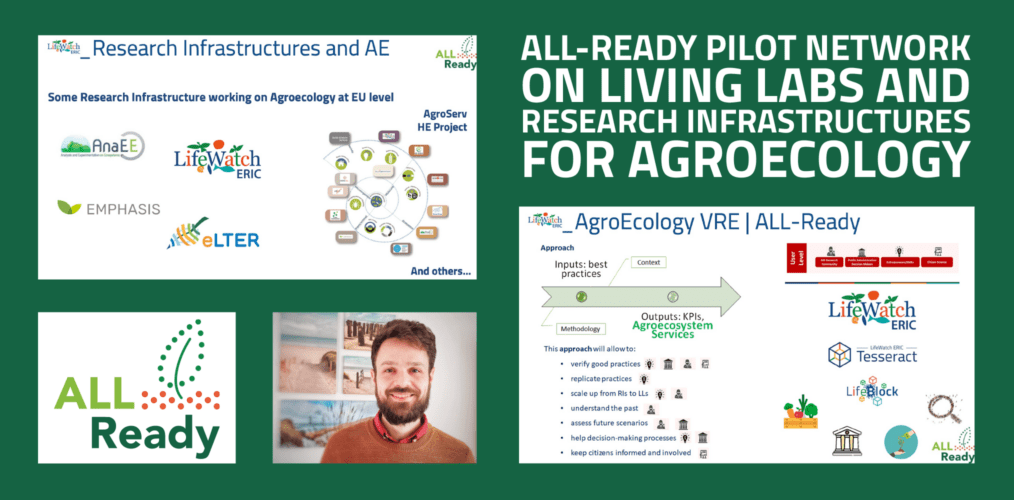
On 11 April 2022, as part of the preparatory work for the EU Partnership on Agroecology Living Labs and Research Infrastructures (ALL-Ready), LifeWatch ERIC Agroecology Officer, José Manuel Ávila-Castuera, participated in a meeting with several German ministries such as the Federal Ministry of Food and Agriculture (BMEL) and the Federal Ministry of Education and Research (BMBF), and funding agencies such as BLE and Project Management Jülich (JÜLICH), to demonstrate how Research Infrastructures (RIs) are a key instrument to in the transition towards agroecology.
The European Commission has proposed a new initiative provisionally entitled “Accelerating farming systems transition: agroecology living labs and research infrastructures” as one of the candidate European Partnerships in food, bioeconomy, natural resources, agriculture and environment, under Horizon Europe’s new approach. These partnerships aim to deliver on global challenges and industrial modernisation through concerted research and innovation efforts, alongside EU and associated countries, the private sector, foundations and other stakeholders.
During the meeting, Korinna Varga (Hungarian Research Institute of Organic Agriculture (ÖMKi) presented the Pilot Network developed in ALL-READY and the Living Labs. ALL-Ready is a H2020 Coordination and Support Action (CSA), funded by the European Commission, that aims to prepare a framework for a future European network of Living Labs and RIs that will enable the transition towards agroecology throughout Europe. Based on the premise that agroecology can strengthen the sustainability and resilience of farming systems, the project will contribute to addressing the multiple challenges that they are facing today, including climate change, loss of biodiversity, dwindling resources, and degradation of soil and water quality.